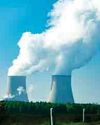
AMMONIA has garnered significant attention due to several factors, such as its ability to leverage existing ammonia trading infrastructure, lower transportation and handling costs compared to hydrogen and other potential low-carbon hydrogen carrier molecules, as well as its relatively high hydrogen mass content and lack of carbon in its molecular structure.
There are two major advantages of using ammonia over hydrogen. Firstly, ammonia boasts a higher volumetric energy density than hydrogen (with a LHV of 12.7GJ/cu m vs 4.7 GJ/cu m for hydrogen at 700 bar and 8.8 GJ/cu m for liquid hydrogen), albeit still inferior to most hydrocarbon fuels.
Thus, a switch to ammonia rather than hydrogen represents a smaller penalty when it comes to maximum energy storage volumes and the cost of such storage.
The second advantage of ammonia is the option to leverage existing ammonia global trade infrastructure.
Ammonia is a globally traded commodity with a well-established freight, storage, and transshipment infrastructure, certification, and operational standards.
In contrast, hydrogen distribution is presently confined to a few regional piped networks in the US and EU, or specific cluster site distribution networks serving various industrial consumers.
TECHNICAL CHALLENGES & KEY SAFETY CONSIDERATIONS
Ammonia, however, introduces a distinct set of safety risks compared to conventional fuels.
While it poses a lower fire and explosion hazard than hydrocarbon fuels, its toxic nature and hydrophilic, corrosive properties necessitate the development of entirely new safety protocols if it were to become one of the primary energy carriers for direct fuel use.
Fortunately, the fertiliser industry has accumulated a substantial body of safety knowledge that can be directly applied in this context.
Diese Geschichte stammt aus der October 2024-Ausgabe von Oil and Gas News.
Starten Sie Ihre 7-tägige kostenlose Testversion von Magzter GOLD, um auf Tausende kuratierte Premium-Storys sowie über 8.000 Zeitschriften und Zeitungen zuzugreifen.
Bereits Abonnent ? Anmelden
Diese Geschichte stammt aus der October 2024-Ausgabe von Oil and Gas News.
Starten Sie Ihre 7-tägige kostenlose Testversion von Magzter GOLD, um auf Tausende kuratierte Premium-Storys sowie über 8.000 Zeitschriften und Zeitungen zuzugreifen.
Bereits Abonnent? Anmelden

SABIC Exhibition to explore innovative tech in downstream
THE 14th edition of the region's largest petrochemical exhibition will be held from January 2630, 2025, in the Jubail Industrial City of Saudi Arabia.

New Emerson solution reduces energy costs
EMERSON has introduced its Energy Manager solution, a pre-engineered hardware and software offering designed to simplify industrial electricity monitoring.

WEG launches W80 AXgen motor
WEG, a global leader in motor manufacturing, has launched the W80 AXgen electric motor, designed for Original Equipment Manufacturers (OEMs).

AMETEK launches quartz microbalance analyser
AMETEK Process Instruments has introduced its next-generation quartz crystal microbalance (QCM) moisture analyser, the 3050OLV, a modern update to a product with over 25 years of reliability and performance.

Clariant catalysts to help cut emissions at Hengli's plant
CLARIANT, a sustainability-focused chemical company, has installed its EnviCat N2O-S catalyst at Hengli Petrochemical's nitric acid plant in Dalian, China.

TotalEnergies installs methane devices
AS part of its ambition to aim for near-zero methane emissions by 2030, TotalEnergies announces that the company is going a step further in the monitoring and reduction of its methane emissions with the deployment of continuous, real-time detection equipment at all of its operated Upstream sites.

More countries declare support for plans to triple nuclear power
AT the COP29 UN climate change conference in Baku, Azerbaijan, six additional countries El Salvador, Kazakhstan, Kenya, Kosovo, Nigeria, and Turkey have joined the call to triple global nuclear energy capacity by 2050, reported World Nuclear News.

Singapore allocates $74 million for green marine energy
SINGAPORE'S of S State, Alvin Tan, announced a SGD$100 million ($74 million) government investment to boost green growth in the marine and offshore energy sector over the next five years at OSEA 2024. The three-day tradeshow attracted over 500 exhibitors and 15,000+ attendees from 100 countries.

India, donor countries abandon energy transition partnership
INDIA will not proceed with the Just Energy Transition Partnership (JETP) initially discussed with donor countries like the US and Germany, aimed at aiding its transition from fossil fuels, particularly coal.

Aramco, Rongsheng in deal for Sasref expansion
SAUDI oil giant Aramco has anSA nounced that it has, along with its key affiliate Saudi Aramco Jubail ReCompany finery (Sasref) signed a development framework agreement with Chinese group Rongsheng Petrochemical at a special event in Beijing that paves the way for expansion of a vital Sasref faclity in Jubail.